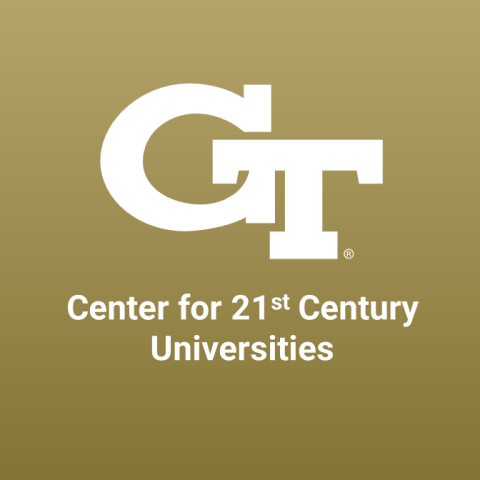
Targeted support to enhance retention among first-generation students
Outreach initiatives and support programmes can address first-generation students’ challenges, such as belonging and financial literacy, while increasing retention and graduation rates. Here, Charmaine Troy shares her recommendations
First-generation students are less likely to persist through degree completion, according to recent literature highlighting student retention in higher education. The Postsecondary National Policy Institute found that, as of the 2015-16 academic year, 56 per cent of the US undergraduate population were first-generation college students (that is, neither parent has a bachelor’s degree). The percentage nationally of first-generation students who persisted at public four-year institutions after the first year was 82 per cent, compared with 86 per cent of continuing-generation students (who have at least one parent with a college degree).
- How universities can ensure first-generation students and their families feel connected
- How to help first-generation students navigate the challenges of higher education
- Leveraging internships to empower first-generation students
The challenges these students face are defined by their first-generation status, race and socio-economic status. First-generation students are more likely to be people of colour and to come from a low socio-economic background. The median parental income among dependent students is $41,000 (£32,500) for first-generation students, in comparison with $90,000 for continuing-generation students. To increase access and equity among first-generation students and continuing students, increasing the retention and graduation rates of first-generation students through targeted support programming is imperative.
How programming for first-generation students can draw on their backgrounds and experience
Many first-generation students feel ill prepared for classes and life on campus because they do not have family members to rely on for advice. Although first-generation student programming will vary by institution and the specific populations served, there is one assumption that can inform service design: students who are continuing generation will possess knowledge and experiences that could be seen as assets that will enrich their own academic experience. This assumption can be used to explore how first-generation students’ backgrounds and experiences can be drawn on both for their own support and to shape how institutions can create services and inclusive structures that will benefit them.
Institutional retention efforts must address the challenges that first-generation students face if they want to achieve a more equitable educational attainment rate. Some common challenges include a sense of belonging, limited family guidance, limited support networks, financial constraints, academic preparedness and impostor syndrome. The creation of promising outreach initiatives and support programmes can address these challenges while increasing success, retention and graduation rates.
Four strategies to help first-gen students succeed in higher education
Here are four ideas for targeted support programmes to help these students navigate the academic and social challenges of starting university:
Mentorship programmes
Mentorship programmes play a critical role in the success and retention of first-generation students. Mentoring can provide guidance and support as they navigate academic and social challenges, set goals and make informed decisions about their educational and career paths. Mentors also offer a supportive relationship for those who may feel isolated on campus and so create a sense of belonging.
Cultural celebration and events
In promoting awareness and understanding and celebrating diverse cultures, identities and perspectives, institutions can create an inclusive and welcoming environment for first-generation students. Examples of cultural initiatives include:
- a welcome reception for admitted first-generation students hosted by the university’s admissions office, first-generation student support and first-gen alumni
- a Welcome Week event for first-generation students that includes first-gen peer mentors and the first-generation student organisation
- a graduation ceremony for first-gen students
- marking the US national First-Generation College Celebration Day on your campus.
Transition programmes
Transition programmes create opportunities for first-generation students to build connections with peers, faculty and staff and introduce them to campus culture. Students are introduced to campus resources and support services that can help them succeed both academically and socially. These programmes can also assist them in building a road map for their college journey. Examples of transition programmes include summer bridge programmes (which are typically one or two months long) and living-learning communities (which are run during the academic year).
Financial literacy workshops
Findings show that the financial decisions students make in college impact their financial status after college. Institutions may want to offer one-credit-hour courses such as personal finance or financial life skills. A course covering the foundation of financial literacy could help to close the wealth gap for first-generation students. It could cover the following basics of financial management:
- budgeting (by understanding their incomes and expenses, students can avoid overspending)
- debt management (this can help students learn about repayment options, interest rates and the importance of paying their bills on time)
- investing (this can help students understand the importance of diversification and long-term financial planning)
- building credit (how to use credit responsibly, making debt payments on time and the importance of building a strong credit history)
- salary negotiation (how to negotiate for higher pay and the value of benefits).
While many targeted programmes exist to support first-generation students, it is important to assess the needs of the specific population that your institution serves before implementation. The initiatives outlined here can serve as a start or addition to first-generation student programming already in place.
Charmaine Troy is associate director of first-generation student initiatives at Georgia Tech.
If you would like advice and insight from academics and university staff delivered direct to your inbox each week, sign up for the Campus newsletter.




